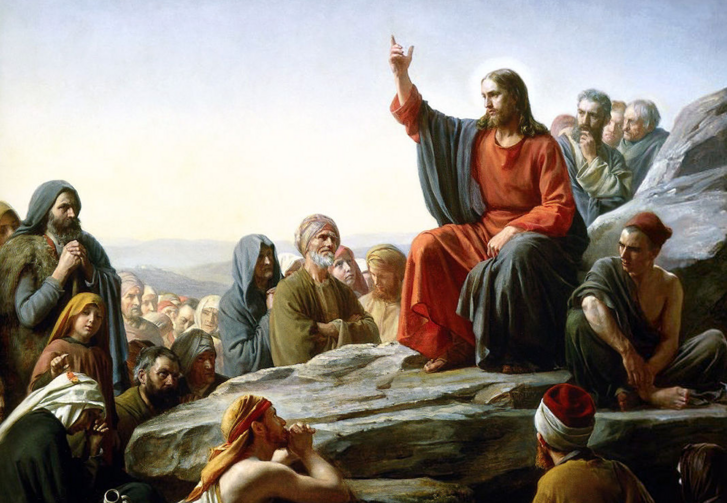“He also told this parable to some who trusted in themselves that they were righteous, and treated others with contempt: ‘Two men went up into the temple to pray, one a Pharisee and the other a tax collector. The Pharisee, standing by himself, prayed thus: “God, I thank you that I am not like other men, extortioners, unjust, adulterers, or even like this tax collector. I fast twice a week; I give tithes of all that I get.” But the tax collector, standing far off, would not even lift up his eyes to heaven, but beat his breast, saying, “God, be merciful to me, a sinner!” I tell you, this man went down to his house justified, rather than the other. For everyone who exalts himself will be humbled, but the one who humbles himself will be exalted.’” (Luke 18:9-14 ESV)
The opening verses of this week’s gospel speak to the chaos of contemporary society. There are so many people today who trust in their own righteousness, their own good works. They use their works to show others how good they are, what outstanding individuals they are compared to the rest of their fellow human beings. They exalt themselves to obtain glory and praise for themselves and, often, to earn favor with God (whatever form he or it may take). They believe their charity and altruism counterbalance, eliminate, or atone for whatever faults, sins, or peccadilloes they may have. But they hold others in contempt despite their outward deeds and expressions of love and compassion, for they, like the Pharisee in this parable, are epitomes of self-confidence.
Yet Jesus wants us to look at the Pharisee as an example we are not to emulate. The Pharisee was a man who paraded his religious deeds proudly. He went up to the temple, stood in a prominent place so all could see him. He prayed not to God, but to or about himself. He boasted in his deeds, did not thank God for what he had but, instead, glorified himself. He felt he was better than everyone else, especially this rotten, unclean, sinful tax collector. Never once did he demonstrate any compassion or love for this sinner. He did not go down to embrace him and say, “Brother I love you. I feel your pain. Let me help you out.” He considered this tax collector to be unclean and unworthy of his attention.
Like the tax collector, we are to come to Jesus as children. He, like a humble child, trusted God totally, and surrendered himself to Him. He prayed for forgiveness and then simply and humbly accepted the mercy the Lord granted. He did not dwell on his sin or wallow in his guilt, or even ask what else He needed to do. He did not say “I don’t deserve it. I haven’t earned it.” He knew he could not. He knew he needed to rely on the love and grace of the Father alone, not on himself. He is the one Jesus wants us to be like. And He wants us to share His love and mercy with all those sinners we meet for the Lord God has granted us mercy and forgiveness not based on our righteousness and good deeds, but upon the righteousness of Jesus imparted to us by faith.

